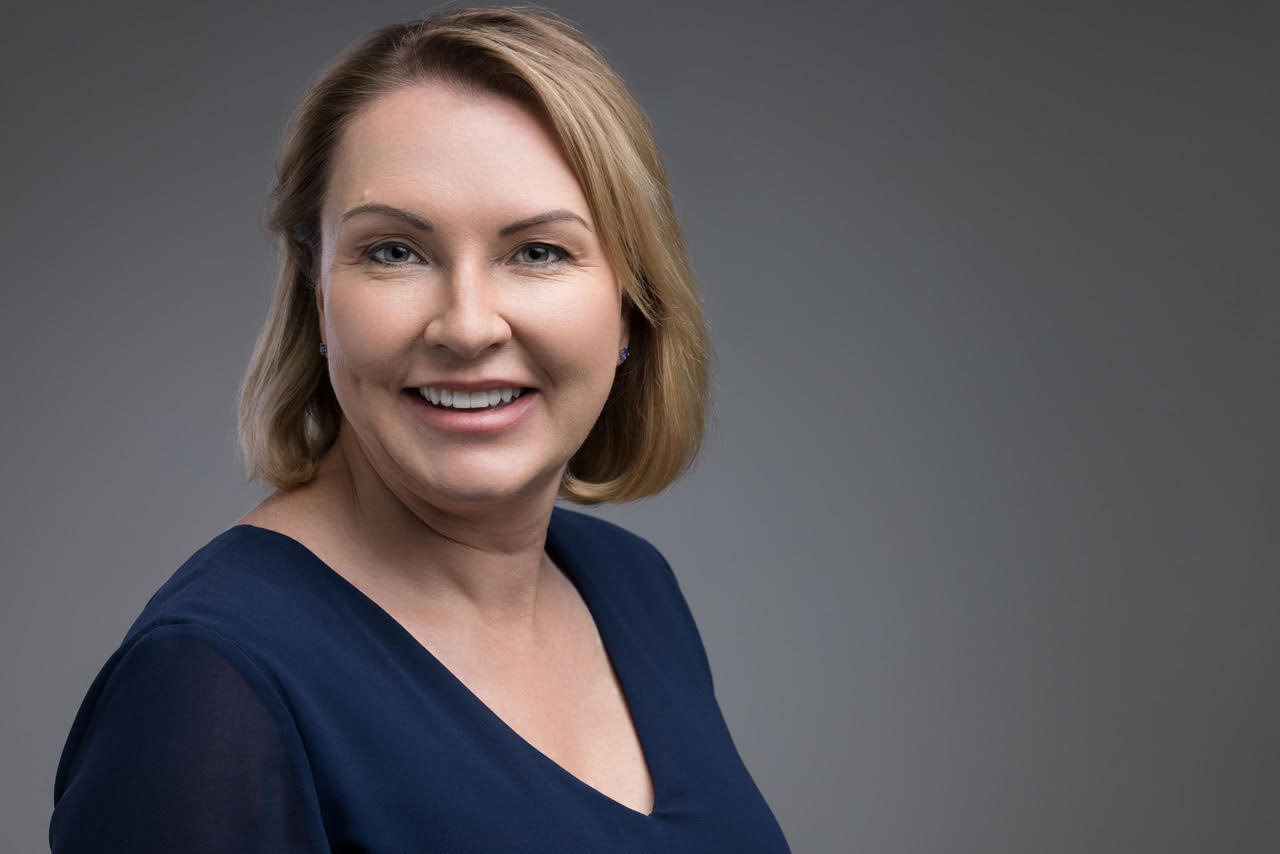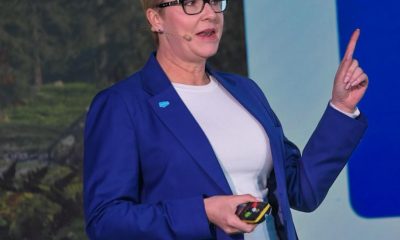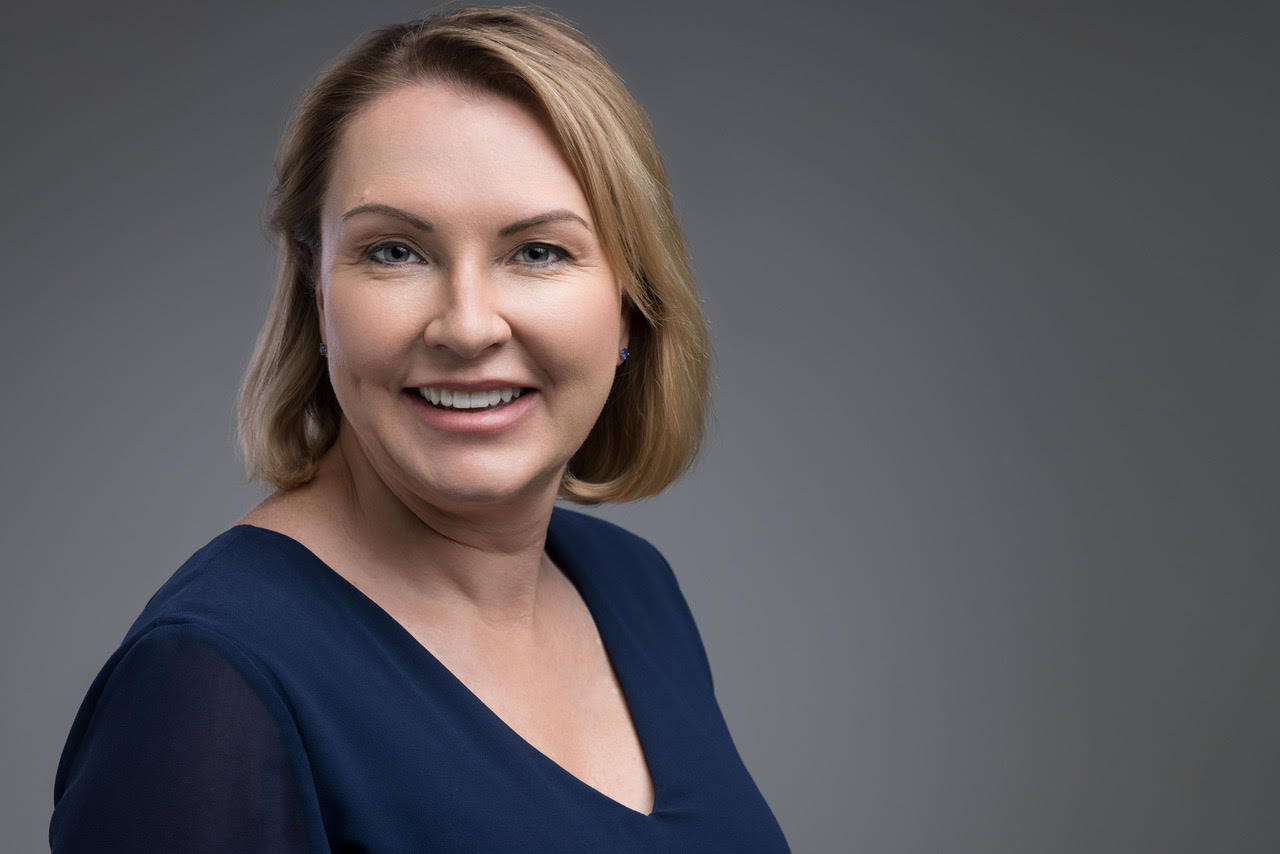Technology
Trusted AI Needs Human at the Helm

By Linda Saunders
AI promises to make our jobs easier, our work more productive, and our businesses more valuable. New research from Slack finds that 80% of employees using generative AI tools are experiencing a boost in productivity — and that’s just the beginning.
And, with the introduction of AI assistants — including Salesforce’s own Einstein Copilot — the potential for businesses is only growing. AI assistants can already answer questions, generate content, and dynamically automate actions. And someday, these assistants will become digital sales and service agents, anticipating our needs and operating on our behalf.
But with each new AI advancement comes new ethical concerns. It’s one thing if an AI assistant offers a bad product recommendation, but if it takes misguided actions on real-world concerns like personal finances or medical information — the stakes suddenly become much higher.
As we enter this new era of human-AI interaction, how can we harness the power of AI without opening ourselves up to dangerous risks?
Keeping a human at the helm
The AI revolution is an evolution. We’re taking quantum leaps forward every day, but we can’t always explain why AI does the things that it does — or eliminate every instance of inaccuracy, toxicity, or misinformation.
For these reasons, it’s important that we keep humans firmly in control of AI systems. But as AI becomes more and more sophisticated, it can be hard to figure out how to layer in that human touch. We’ve all heard of keeping “humans in the loop,” but with this new generation of AI, it’s sometimes just not realistic for us to engage in every AI interaction or review every AI-generated output.
That’s why, at Salesforce, we believe trusted AI needs a human at the helm. Instead of asking humans to intervene in every individual AI interaction, we’re designing more powerful, system-wide controls that put humans at the helm of AI outcomes and enable them to focus on the high-judgement items that most need their attention. In other words, humans aren’t always rowing the boat — but we’re very much steering the ship.
With a human at the helm, we can design AI systems that leverage the best of human and machine intelligence. For example, we can unlock incredible efficiencies by tasking AI to review and summarise millions of customer profiles. At the same time, we can build trust by empowering humans to lean in and use their judgement in ways that AI can’t.
Making AI a copilot, not an autopilot
There’s a reason this generation of AI products are called copilots and not autopilots. As AI becomes more powerful and autonomous — making decisions and taking actions on individuals’ behalf — keeping a human at the helm becomes even more important. By combining the capabilities of AI with the strength of human judgment, we can make AI more effective and trustworthy.
Here are three ways we’re keeping humans at the helm of Salesforce AI:
-
Prompt Builder Helps Us Automate in Authentic Ways: Prompts, or the instructions we send to generative AI models, are very powerful. A single, human-generated prompt can help guide millions of trusted outputs — but only if it’s constructed thoughtfully. With our newly announced Prompt Builder, we’re helping customers craft effective prompts by seeing the likely output in near real-time to help ensure they get the AI outcome they want. We’ve also added different edit modes within Prompt Builder that allow users to tune and revise their prompts to provide more helpful, accurate, and relevant results.
-
Audit Trails Help Us Spot What We’ve Missed: Our Einstein Trust Layer offers a robust audit trail that allows customers to assess AI’s track record and pinpoint where their AI assistant may have gone wrong and where AI went right. These features help identify issues across large datasets that humans might not spot; and can empower us to use our judgement to make adjustments based on the needs of our organisation. For example, Audit Trail can alert us when an AI tool’s outputs are flagged as “thumbs down” a certain number of times — a sign that the AI-generated outputs might not be meeting the business goals. By aggregating implicit feedback signals, like how often users edit an output before using it, Audit Trail can give us a bird’s eye view of our systems, allowing us to identify trends and take action.
-
Data Controls Help Us Better Guard Our Data: AI is nothing without data. That’s why we’ve designed robust controls in Data Cloud — our fast-growing platform that helps bring siloed customer data together in one place — to help businesses securely action their data. Data Cloud features help organizations harness data for AI-powered insights and intelligence. In contrast, longstanding Salesforce core data controls like permission sets, access controls, and data classification metadata fields empower humans and AI models alike to protect and manage sensitive data.
Pioneering a new approach for the AI era
As the AI era continues to unfold, both humans and technology must evolve along with it. The AI revolution is not just about technological innovation — it’s also about empowering humans to sit successfully at the helm of AI, and use it in ways that are trustworthy and effective.
Our approach is evolving, and we are committed to continued research, learning, and multi-stakeholder collaboration on this topic. But with a human at the helm, we believe we can combine the best of human and machine intelligence for this new AI era — leaning into AI’s capabilities and freeing up humans to do what they do best: be creative, exercise their judgement, and connect more deeply with one another.
With AI and humans working together, we can create more productive businesses, more empowered employees, and ultimately, more trustworthy AI.
Linda Saunders is the Salesforce Director for Solution Engineering Africa
Technology
Telecom Operators to Issue 14-Day Notice Before SIM Disconnection

By Adedapo Adesanya
Telecommunications operators in Nigeria will now be required to give subscribers a minimum of 14 days’ notice before deactivating their SIM cards over inactivity or post-paid churn, following a fresh proposal by the Nigerian Communications Commission (NCC).
The proposal is contained in a consultation paper, signed by the Executive Vice Chairman and Chief Executive Officer of the NCC, Mr Aminu Maida, and titled Stakeholders Consultation Process for the Telecoms Identity Risks Management Platform, dated February 26, 2026, and published on the Commission’s website.
Under the proposed amendments to the Quality-of-Service (QoS) Business Rules, the Commission said operators must notify affected subscribers ahead of any planned churn.
“Prior to churning of a post-paid line, the Operator shall send a notification to the affected subscriber through an alternative line or an email on the pending churning of his line,” the document stated.
It added that “this notification shall be sent at least 14 days before the final date for the churn of the number.”
A similar provision was proposed for prepaid subscribers. According to the Commission, operators must equally notify prepaid customers via an alternative line or email at least 14 days before the final churn date.
Currently, under Section 2.3.1 of the QoS Business Rules, a subscriber’s line may be deactivated if it has not been used for six months for a revenue-generating event. If the inactivity persists for another six months, the subscriber risks losing the number entirely, except in cases of proven network-related faults.
The new proposal is part of a broader regulatory review tied to the rollout of the Telecoms Identity Risk Management System (TIRMS), a cross-sector platform designed to curb fraud linked to recycled, swapped and barred mobile numbers.
The NCC explained in the background section of the paper that TIRMS is a secure, regulatory-backed platform that helps prevent fraud stemming from churned, swapped, barred Mobile Station International Subscriber Directory Numbers in Nigeria.
It said this platform will provide a uniform approach for all sectors in relation to the integrity and utilisation of registered MSISDNs on the Nigerian Communications network.
In addition to the 14-day notice requirement, the Commission also proposed that operators must submit details of all churned numbers to TIRMS within seven days of completing the churn process, strengthening oversight and accountability in the system.
The consultation process, which the Commission said is in line with Section 58 of the Nigerian Communications Act 2003, will remain open for 21 days from the date of publication. Stakeholders are expected to submit their comments on or before March 20, 2026.
Technology
Silverbird Honours Interswitch’s Elegbe for Nigeria’s Digital Payments Revolution

By Modupe Gbadeyanka
The founder of Interswitch, Mr Mitchell Elegbe, has been honoured for pioneering Nigeria’s digital payments revolution.
At a ceremony in Lagos on Sunday, March 1, 2026, he was bestowed with the 2025 Silverbird Special Achievement Award for shaping Africa’s financial ecosystem.
The Silverbird Special Achievement Award recognises individuals whose innovation, vision, and sustained impact have left an indelible mark on society.
Mr Elegbe described the award as both humbling and symbolic of a broader journey, saying, “This honour represents far more than a personal milestone. It reflects the courage of a team that believed, long before it was fashionable, that Nigeria and Africa could build world-class financial infrastructure.”
“When we started Interswitch, we were driven by a simple but powerful idea that technology could democratise access, unlock opportunity, and enable commerce at scale.
“This recognition by Silverbird strengthens our resolve to continue building systems that empower businesses, support governments, and expand inclusion across the continent,” he said when he received the accolade at the Silverbird Man of the Year Awards ceremony attended by several other dignitaries, whose leadership and contributions continue to shape national development and industry transformation.
In 2002, Mr Elegbe established Interswitch after he was inspired by a bold conviction that technology could fundamentally redefine how value moves within and across economies.
Under his leadership, the company has evolved into one of Africa’s foremost integrated payments and digital commerce companies, powering financial transactions for governments, banks, businesses, and millions of consumers.
Today, much of Nigeria’s electronic payments ecosystem traces its foundational architecture to the systems and rails established under his leadership.
“Mitchell’s journey is inseparable from Nigeria’s digital payments evolution. His foresight and resilience helped establish foundational infrastructure at a time when the ecosystem was still nascent.
“This recognition affirms not only his personal legacy, but the broader impact of Interswitch in enabling commerce and strengthening financial systems across Africa,” the Executive Vice President and Group Marketing and Communications for Interswitch, Ms Cherry Eromosele, commented.
Technology
SERAP Seeks FCCPC Probe into Big Tech’s Impact on Nigeria’s Digital Economy

By Adedapo Adesanya
The Socio-Economic Rights and Accountability Project (SERAP) has called on the Federal Competition and Consumer Protection Commission (FCCPC) to urgently investigate major global technology companies over alleged abuses affecting Nigeria’s digital economy, media freedom, privacy rights and democratic integrity.
In a complaint addressed to the chief executive of FCCPC, Mr Tunji Bello, the group accused Google, Meta (Facebook), Apple, Microsoft (Bing), X, TikTok, Amazon and YouTube of deploying opaque algorithms and leveraging market dominance in ways that allegedly undermine Nigerian media organisations, businesses, and citizens’ rights.
The complaint, signed by SERAP Deputy Director, Mr Kolawole Oluwadare, urged the commission to take measures necessary to urgently prevent further unfair market practices, algorithmic influence, consumer harm and abuses of media freedom, freedom of expression, privacy, and access to information.”
SERAP also asked the FCCPC to convene a public hearing to investigate allegations of algorithmic discrimination, data exploitation, revenue diversion, and anti-competitive conduct involving the tech giants.
According to the organisation, dominant digital platforms now act as private gatekeepers of Nigeria’s information and business ecosystem, wielding enormous influence over public discourse and market competition without sufficient transparency or regulatory oversight.
“Millions of Nigerians rely on these platforms for news, information and business opportunities,” SERAP stated, warning that opaque algorithms and offshore revenue extraction models pose both economic and human rights concerns.
The group argued that the alleged practices threaten media plurality, consumer protection, privacy rights, and the integrity of Nigeria’s forthcoming elections.
SERAP pointed to actions taken by the South African Competition Commission, which investigated Google over alleged bias against local media content, adding that the South African probe reportedly resulted in measures including algorithmic transparency requirements, compliance monitoring and financial remedies.
SERAP urged the FCCPC to take similar steps to safeguard Nigerian media and businesses.
The organisation maintained that if established, the allegations could amount to violations of Sections 17 and 18 of the Federal Competition and Consumer Protection Act (FCCPA), which prohibit abuse of market dominance and anti-competitive conduct.
SERAP stressed that the FCCPC has statutory authority to investigate and sanction conduct that substantially prevents, restricts or distorts competition in Nigeria.
It also warned that failure by the Commission to act promptly could prompt the organisation to pursue legal action to compel regulatory intervention.
Citing concerns reportedly raised by the Nigerian Press Organisation (NPO), SERAP said big tech companies have fundamentally altered Nigeria’s information environment, creating what it described as a structural imbalance of power that threatens the sustainability of professional journalism.
Among the allegations listed are: Algorithms controlled outside Nigeria determining content visibility, monetisation of Nigerian news content without proportionate reinvestment, offshore extraction of advertising revenues, limited discoverability of Nigerian websites and platforms, and lack of transparency in ranking and recommendation systems.
SERAP argued that declining revenues in the Nigerian media industry have led to shrinking newsrooms, closure of bureaus, and the emergence of news deserts, weakening journalism’s constitutional role in democratic accountability.
The organisation further warned that algorithmic opacity and data-driven micro-targeting could influence voter exposure to information ahead of Nigeria’s forthcoming elections, raising concerns about electoral fairness and transparency.
-

 Feature/OPED6 years ago
Feature/OPED6 years agoDavos was Different this year
-
Travel/Tourism10 years ago
Lagos Seals Western Lodge Hotel In Ikorodu
-

 Showbiz3 years ago
Showbiz3 years agoEstranged Lover Releases Videos of Empress Njamah Bathing
-

 Banking8 years ago
Banking8 years agoSort Codes of GTBank Branches in Nigeria
-

 Economy3 years ago
Economy3 years agoSubsidy Removal: CNG at N130 Per Litre Cheaper Than Petrol—IPMAN
-

 Banking3 years ago
Banking3 years agoSort Codes of UBA Branches in Nigeria
-

 Banking3 years ago
Banking3 years agoFirst Bank Announces Planned Downtime
-

 Sports3 years ago
Sports3 years agoHighest Paid Nigerian Footballer – How Much Do Nigerian Footballers Earn

















